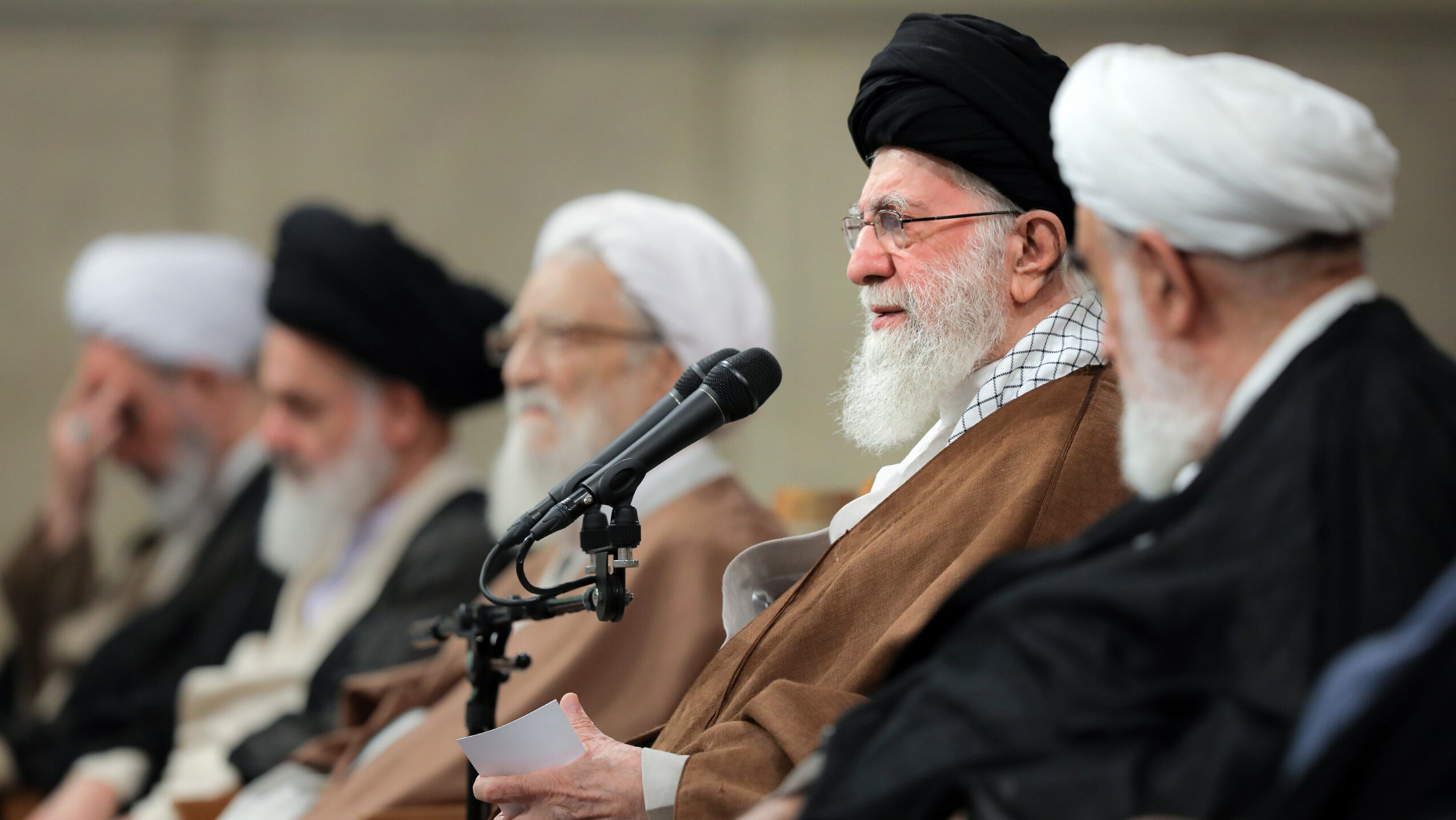Rumors vs. Realities: Would Khamenei’s Death Bring Reform or Revolution?
A new leader, perhaps Khamenei’s son, could bring the illusion of reform or else spark a popular uprising. Regime change, though possible, is thought to be unlikely.
Recent rumors surrounding Iranian Supreme Leader Ayatollah Ali Khamenei’s health have been largely dispelled, but questions persist about what will happen when the 85-year-old leader is no longer in power.
The stakes are high. While many speculate on Khamenei’s successor, the broader concern centers on the nature of Iran’s impending political transition.
Iranian journalist and analyst Ashkan Safaei Hakimi outlined to The Media Line two main scenarios: one where a new leader attempts to mend relations with the West, likely creating only the perception of reform, and another where political instability triggers a popular uprising, potentially leading to regime change.
Khamenei has served as Iran’s supreme leader for roughly three decades. Though the position is primarily spiritual, it wields immense power, with authority over major issues like foreign policy and the nuclear program.
Speculation about Khamenei’s health began with an October 27 New York Times report hinting that his son, Mojtaba Khamenei, might be his successor. Over the weekend, claims surfaced that the supreme leader was in a coma. By Sunday, Iranian state media countered these rumors by publishing a photo of Khamenei meeting with Iran’s ambassador to Lebanon, Mojtaba Amani.
Dr. Liora Hendelman-Baavur, director of the Alliance Center for Iranian Studies, speculated to The Media Line that the rumors could be an attempt “to instigate or stir up domestic and internal protests or demonstrations to destabilize the system from the inside.”
Widespread opposition to the regime persists in Iran. The Tony Blair Institute (TBI) reported that more than 4,000 street protests have taken place across the country’s provinces over the past two years.
This holiday season, give to:
Truth and understanding
The Media Line's intrepid correspondents are in Israel, Gaza, Lebanon, Syria and Pakistan providing first-person reporting.
They all said they cover it.
We see it.
We report with just one agenda: the truth.


This is not a flash-in-the-pan moment for Iran but a movement with an unprecedented level of support across all demographics
“This is not a flash-in-the-pan moment for Iran but a movement with an unprecedented level of support across all demographics,” wrote Jemima Shelley, a geopolitics analyst for TBI.
Rumors about Khamenei’s failing health are not new. In 2006, political analyst Michael Ledeen claimed he was in a coma, with similar reports resurfacing in 2009, 2014, and 2020. In 2014, Khamenei reportedly underwent prostate surgery in Tehran, though only the procedure itself was confirmed.
Prostate cancer is a common global illness. Prof. Shay Golan, head of the Urologic Oncology Service at Israel’s Beilinson Hospital, noted that millions are diagnosed annually, with approximately 3,000 new cases each year in Israel and 500 deaths.
Golan explained to The Media Line that in cases of metastatic, stage IV prostate cancer, severe complications like comas or multi-organ failure can occur.
Usually, prostate cancer grows really, really slowly, and today, we can diagnose the disease in its very early stages
“But that is at the end of the disease,” Golan said. “Usually, prostate cancer grows really, really slowly, and today, we can diagnose the disease in its very early stages. If patients get diagnosed in the early stage, 90% of them can be cured of the disease.”
Even in later stages, advances in treatment mean patients can “live for years in good health and good quality of life.” However, Golan emphasized that such outcomes are primarily seen in Western countries. In low- and middle-income nations like Iran, access to advanced treatments is limited, and life expectancy in such cases may be as short as two to three years.
For over a decade, speculation has surrounded Mojtaba Khamenei as a potential successor. Although he is a mid-ranking cleric, Mojtaba is said to hold significant influence behind the scenes. The elder Khamenei cannot directly appoint his successor; that decision falls to the Assembly of Experts, an 88-member body of Shia clerics.
Hendelman-Baavur noted that the assembly functions in secrecy and does not issue public statements.
“It’s not easy to know what exactly goes on in these meetings,” she said.
She suggested that Mojtaba Khamenei’s name might be floated to gauge public sentiment or serve as a distraction from another preferred candidate. Over the past decade, many names have been considered for succession.
“It can always change,” analyst Hakimi concluded.

